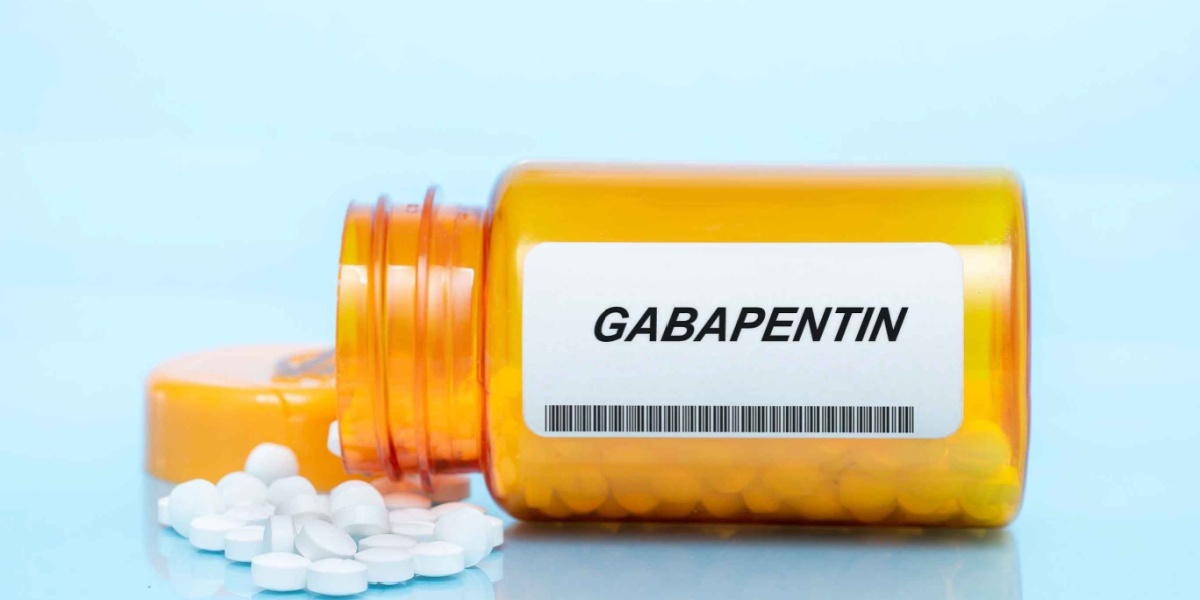When a person who drinks heavily stops or dramatically reduces alcohol intake, they will most likely experience alcohol withdrawal – a spectrum of symptoms ranging from mild tremors and anxiety to severe complications like seizures and delirium tremens (DTs). [1] Alcohol withdrawal must be managed with the utmost care and expertise: severe withdrawal can be life-threatening, and early intervention reduces risks. The current standard of care for moderate to severe withdrawal is long-acting benzodiazepines like diazepam (Valium). [1]
However, benzodiazepines may not be a suitable choice for everyone, although it is the gold standard. Recently, however, another medication, gabapentin, has emerged as an off-label medication to manage alcohol withdrawal.
This article provides an overview of alcohol withdrawal management and explores gabapentin’s role, effectiveness, dosing guidelines, side effects, and how it compares to traditional treatments.
- Gabapentin isn’t FDA-approved for alcohol withdrawal, but it’s used off-label. It may be beneficial for people with mild to moderate withdrawal symptoms.
- The dosage can vary widely and is specific to individual factors like withdrawal severity, kidney function, and use of any other medications.
- When used under medical supervision, gabapentin is well-tolerated with a favorable safety profile, but it must be taken as prescribed. Common side effects include dizziness and drowsiness.

Gabapentin: An overview
Gabapentin (brand name Neurontin), an anti-epileptic developed initially to treat epilepsy, works by attaching to the alpha-2-delta (α2δ) subunit of voltage-gated calcium channels in the nervous system, reducing the release of excitatory neurotransmitters. [1]
Despite its name, gabapentin doesn’t directly act on gamma-aminobutyric acid (GABA) receptors; gabapentin is thought to secondarily influence GABA and glutamate tone/activity; this effect can help reduce anxiety, restlessness, and other symptoms common in alcohol withdrawal.
Gabapentin is FDA-approved for: [2]
- Epilepsy (as an add-on therapy)
- Postherpetic neuralgia (nerve pain following shingles)
Off-label uses for gabapentin include: [2][3]
- Various neuropathic pain conditions
- Anxiety and mood disorders
- Restless legs syndrome
- Alcohol withdrawal and cravings
It does not carry the same immediate intoxication or substantial physical dependence risk as benzodiazepines, which has made it an attractive alternative for certain patients. However, gabapentin for alcohol withdrawal is not an FDA-approved indication; it is a practice based on accumulating clinical evidence.
Gabapentin in alcohol withdrawal management
Gabapentin shows promise in treating mild to moderate alcohol withdrawal syndrome (AWS), either alone or alongside traditional therapies. Studies over the last two decades indicate it effectively reduces withdrawal symptoms and improves patient comfort. In one outpatient trial, high-dose gabapentin (1200 mg daily, tapered) matched lorazepam (benzodiazepine) in easing withdrawal symptoms like tremors and anxiety but had the added benefit of reducing alcohol cravings and relapse rates afterward. [4]
Clinical use in hospitals also supports gabapentin's effectiveness for AWS. A retrospective study found that patients on gabapentin had shorter withdrawal periods and hospital stays compared to those on benzodiazepines, with similar symptom relief. [1]
However, if someone is at risk for severe or complicated withdrawal (like seizures or DTs), benzodiazepines are preferred. Gabapentin alone (as monotherapy) may not be sufficient for treating critical cases, although it can still be used alongside other medications to help ease certain withdrawal symptoms.[5]
Dosage and administration for alcohol withdrawal
Because gabapentin is not officially FDA-approved for alcohol withdrawal, there isn’t one standard dosing protocol. Doctors often customize the dose based on: [1]
- Symptom severity: People with more severe symptoms might need higher doses within the safe range.
- Renal function: Gabapentin is cleared through the kidneys, so patients with reduced kidney function will need their dose adjusted.
- Concurrent medications: If someone is also on benzodiazepines or other drugs, timing, and dosages may need fine-tuning to avoid interactions and side effects.
Typically, gabapentin is given as a time-limited taper over several days to a week during the withdrawal phase. A common approach is to use relatively high doses initially (to control acute symptoms) and then gradually taper down. One hospital protocol uses 900 mg of gabapentin three times daily for the first 4 days of withdrawal, then reduces the dose to 600 mg three times daily for 3 days, then 300 mg three times daily for 2 days before stopping.[1]
In outpatient settings, shorter courses have been used; one clinical trial started patients on either 900–1200 mg of gabapentin (in divided doses) for 4 days and then tapered over the next few days. [4]
Potential side effects and risks
Gabapentin is generally well-tolerated, but it’s not without its drawbacks. Some people experience: [6]
- Drowsiness
- Fatigue
- Dizziness
- Lightheadedness
- Coordination Problems
- Occasional upset stomach or diarrhea
- Nausea
- Blurred vision
- Dry mouth
- In rare cases, some people report feeling depressed, having mood swings, and suicidal thoughts
Misuse or dependency concerns
Gabapentin was once viewed as low-risk for abuse, but data show that misuse can happen, particularly among people with a history of substance use disorder. [7]
Who may not be able to take gabapentin
Gabapentin is not suitable for some people, especially for those who: [8]
- Ever had an allergic reaction to gabapentin
- Ever misused or been addicted to medication
- Are pregnant
- Are on a controlled sodium or potassium diet
- Have kidney problems with decreased renal function
Comparison with traditional treatments for alcohol withdrawal
There are quite a few medications that are used alone or in combination for AWS, and below is a non-exhaustive list:
- Benzodiazepines are still the gold standard for severe withdrawal due to their ability to prevent seizures and calm the CNS quickly. Benzodiazepines treat AWS by working on the same receptors as alcohol in the brain. This allows them to essentially replace the effects of alcohol in the brain and prevent withdrawal symptoms. [9]
- Carbamazepine, like gabapentin, can reduce alcohol withdrawal symptoms and seizure risk without causing respiratory depression and has shown similar efficacy as some benzodiazepines. Still, it's also used off-label and as an adjunct therapy as there are limited data for its efficacy in managing DTs and severe withdrawal. [10]
- Clonidine is an FDA-approved antihypertensive that reduces adrenergic symptoms in alcohol withdrawal. It has not been explicitly compared to gabapentin. However, since it doesn't affect GABA or glutamate pathways, it shouldn't be used alone, as it won't prevent seizures or DTs. [10]
No matter what pharmacological approach is used, supportive care is a cornerstone of alcohol withdrawal management. This includes: [10]
- Hydration (IV fluids if needed)
- Nutritional support
- Vitamin supplementation (particularly thiamine and other B vitamins) to prevent neurological complications
- Providing a calm and quiet environment
Is Gabapentin the right treatment for you?
Deciding on a treatment for alcohol withdrawal is a personalized process. Gabapentin may be the right choice for some people, but not for others. Here are a few considerations to keep in mind when discussing options with your healthcare provider:
- Severity of withdrawal: Gabapentin is best suited for people expected to have mild to moderate withdrawal symptoms.
- Medical history and comorbidities: If you have co-occurring conditions, this might influence the decision. For example, if you have significant kidney impairment, the doctor might choose a different medication or use a lower dose of gabapentin with close monitoring. [1] If you have liver disease from alcohol, gabapentin is an attractive choice because it is not metabolized by the liver (unlike many other drugs). [10]
- Risk of medication misuse: If you or your doctor is concerned about the potential for the misuse of certain medications, this will affect the plan. Your doctor might use a benzodiazepine-sparing treatment plan using gabapentin.[11]
How to consult your physician
When consulting your physician or addiction specialist about using gabapentin, consider discussing the following points:
- Share your complete medical and substance use history. These details help tailor the safest and most effective plan.
- Discuss all your medications and supplements. Potential interactions matter, and your doctor needs to know the complete picture.
- Be clear and direct about your symptoms and concerns. You might need dose adjustments or closer monitoring, especially at the beginning.
By having this dialogue, you and your provider can ensure that if gabapentin is used, it’s used safely and as part of a comprehensive plan tailored to your needs.


-(1)-guide-detail.jpg?v=1722501492)
-guide-detail.jpg?v=1722503307)
